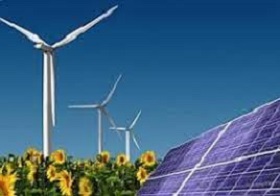Ecology, Energy, Estonia, Financial Services
International Internet Magazine. Baltic States news & analytics
Thursday, 25.04.2024, 19:21
Eesti Energia gets almost half of Estonian renewable energy subsidy in February
 Print version
Print version |
|---|
Enefit Green was
paid roughly 2.1 mln euros and its subsidiary Nelja Energia 2 mln euros in renewable energy support. In total,
companies of Eesti Energia group
received 4.1 mln euros in subsidies during the month, which accounted for 46.2%
of the total amount paid out.
Fortum Eesti and Anne
Soojus, Estonian holdings of Fortum
Power and Heat OY energy group of Finland, received altogether
approximately 1.5 mln euros during the month. Utilitas Tallinna Elektrijaam, an 8% holding in which was sold by
businessman Kristjan Rahu to the
EDIF II infrastructure fund managed by the Australian investment company First State in November, was paid 1.4 mln
euros under the two items by Elering.
The combined heat and power (CHP) generating companies Imavere Energia, Helme Energia and Osula Energia of the Graanul Invest group received altogether
876,000 euros in renewable energy support.
Elering paid out
altogether 16.6 mln euros in renewable energy support and high-efficiency
cogeneration support during the first two months of the year.
Nelja Energia group
owns the companies VV Tuulepargid,
Aseriaru Tuulepark, Hanila Tuulepargid, Pakri Tuulepargid, Vinni Biogaas and
Oisu Biogaas.
During 2018, Elering
paid out 78.5 mln euros in renewable energy support and 3.5 mln euros in
high-efficiency cogeneration support, of which a third was received by
renewable energy companies of Eesti
Energia.
When administering renewable energy subsidies, Elering acts as a paying agency,
collecting renewable energy fees from consumers through network companies and
paying this as subsidy to electricity plants producing electricity from
renewable sources.
Last year, renewable energy charge was paid 0.89 cents per
kilowatt-hour, but this year, the fee rose to the same level as in 2017, 17% to
1.04 cents per kilowatt-hour.
Renewable energy support and high-efficiency cogeneration
support are deemed state aid.








 «The Baltic Course» Is Sold and Stays in Business!
«The Baltic Course» Is Sold and Stays in Business!

